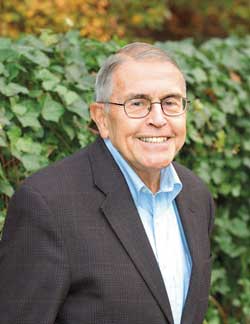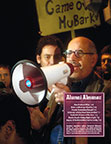Acts of Courage, Revisited
Printer Friendly Version In 1946, 12-year-old Gordon Martin Jr. played for Boston’s all-white West Roxbury baseball team. It was a year before Jackie Robinson broke the color barrier, and that season’s big game was against an all-black team. “I had never thought about black people playing baseball,” Martin recalled. “The grass was green, and the players were white. That’s the way it had been for me. But by the end of our game, I was impressed by these darkskinned kids who had ventured out to play with us.”
In 1946, 12-year-old Gordon Martin Jr. played for Boston’s all-white West Roxbury baseball team. It was a year before Jackie Robinson broke the color barrier, and that season’s big game was against an all-black team. “I had never thought about black people playing baseball,” Martin recalled. “The grass was green, and the players were white. That’s the way it had been for me. But by the end of our game, I was impressed by these darkskinned kids who had ventured out to play with us.”
Sixteen years later, Martin ’60 would again be indelibly touched by courageous black citizens, this time in Hattiesburg, Mississippi. Armed with a law degree that he earned as a Root-Tilden Scholar, Martin was a staff attorney in the Civil Rights Division of the Department of Justice. He prepared witnesses for the government’s case United States of America v. Theron C. Lynd, during which they would attest that they were denied the right to vote for failing to answer such questions as “How many bubbles in a bar of soap?”
That year, 1962, the federal government won its very first contempt conviction of a southern registrar, the cigar-chomping Lynd. It was a significant step toward passage of the Voting Rights Act of 1965, by which Congress outlawed discriminatory practices in voter enrollment.
A quarter-century later, Gordon was a Boston criminal court judge and overwhelmed by daily stories of senseless violence. Needing a change of scenery, he applied to attend Race and Nationality in Modern America, a seminar offered by NYU’s Humanities Department. As Martin recounts, Professor David Reimers called to ask if he’d actually come from Boston every Friday. “I told him,” says Martin, “‘So long as the shuttle is flying, I’ll be there.’”
Martin’s seminar project idea grew into his 2010 book, Count Them One by One: Black Mississippians Fighting for the Right to Vote, an account of how, after several decades, he tracked down those brave Lynd witnesses, or their descendants, and had them recall the case and the times.
The book was nominated this spring for a Silver Gavel award from the American Bar Association by retired DePauw University History Professor John Dittmer, who calls it “a masterful combination of historical memoir and scholarly research. What is particularly impressive and important is the oral history component of the book. [T]he local people are at the center of this book, where they should be.”
Now retired and an adjunct professor at New England Law, Martin went on a southern book tour this winter. In Memphis he met Reginald Houze, the 33-year-old grandson of one of Lynd’s black witnesses. A high school music director with a master’s in education from NYU’s Steinhardt School, Houze grew up in a Hattiesburg where white and black children “went to school together, played together, slept over at each others’ homes, and still know one another.” He had only a vague awareness of Hattiesburg’s past. “What a history lesson,” Houze said. “Now I know why Election Day was always important in my family.”
Indeed, it’s hard to imagine any day more significant than the one in 2008 when people could vote for Barack Obama to become the first black U.S. president. But the criminal court judge in Martin is not yet ready to celebrate. “An adolescent black male has a greater likelihood of coming under penal or probation restraint than attending a fouryear college,” he points out. “We still have a long way to go.”
—

 Multimedia
Multimedia